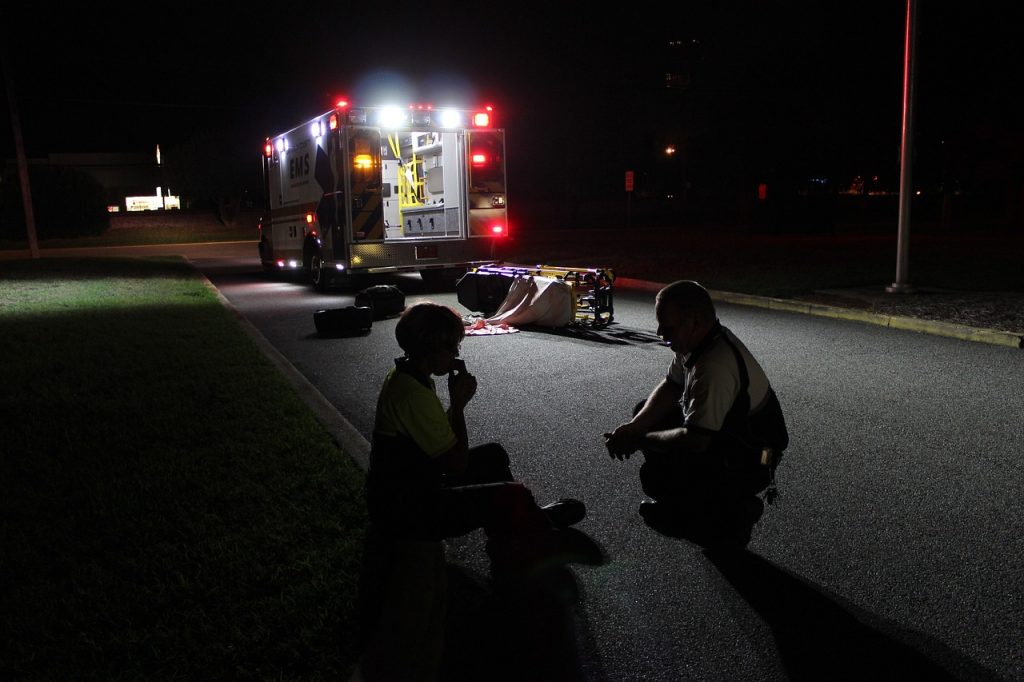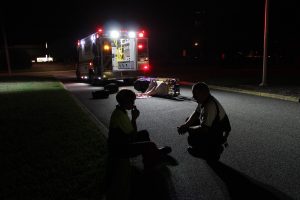Millions of Americans are involved in auto accidents every year. Unfortunately, a large number of people involved in auto accidents suffer injuries like PTSD. According to a study by the National Institute of Mental Health, around 39% of motor vehicle accident victims develop PTSD. Understanding what PTSD is and how to tell if you have it can help you make informed decisions on how to cope with and treat this condition.
What is PTSD?
Post-traumatic stress disorder (PTSD) is a type of anxiety disorder that manifests after a person goes through a traumatic event, such as a car accident. While PTSD is common in victims of car accidents, it can happen as a result of any type of traumatic event. It is common with soldiers who return from war. Even a “near-miss” accident can lead to PTSD. There is no timeline for how long PTSD will last. In some cases, it can go away within weeks, while in other cases, it can last for years.

If a person suffers from PTSD, it can lead to physiological responses that impact their quality of life. For example, the person can have difficulty sleeping, reacting appropriately to situations, or have trouble maintaining personal relationships.
Studies have also highlighted that PTSD can often be present with other conditions. This is known as comorbidity. Conditions such as depression and mood disorders have a high comorbidity rate with PTSD.
Recognizing Symptoms of PTSD
Recognizing symptoms of PTSD could be the key to getting a diagnosis and starting treatment. A common symptom of PTSD is being constantly on edge or hyper-alert. This often results from the victim always thinking that they are in a dangerous situation, even when the situation is normal. Physical symptoms of hypervigilance include increased heart rate, extreme reaction to external stimuli, excessive sweating, and shallow breathing. There is also mental exhaustion as too much energy is spent on planning for and avoiding perceived dangers that don’t exist.
Victims of PTSD can also suffer from sleep disturbances, where they have difficulty falling and/or staying asleep. Nightmares are also common with PTSD. If the victim starts to fear their nightmares, they might avoid sleeping.
Mood and temperament changes are common in PTSD. A common physical symptom of PTSD is headaches. Several studies have shown that car accident victims who suffer from chronic headaches also have PTSD.
A few things can make PTSD even worse. This includes getting stuck in a cycle of self-blame, guilt, and ruminations about “what-ifs.” The victims of car accidents might blame themselves for causing pain and suffering to themselves or others involved in the accident. These feelings can be worse if there was a fatality in the accident.
Risk Factors
Several factors have been found to increase the risk of developing post-traumatic stress disorder. A key factor is how the person perceives the accident and subsequently responds to the trauma. If a person believes their life is in danger, then they are far more likely to suffer from PTSD. Studies have also shown that avoidance behaviors or brooding about the trauma can increase the risk of developing PTSD.
Other risk factors for PTSD include a family history of mental health disorders, high levels of emotion, dissociation during or immediately after the car accident, a history of prior trauma, and lack of support from friends and family after the accident.
Getting Help
If you notice your symptoms are getting worse, or existing symptoms are causing disruption to your life, it is time to consider getting professional help. The earlier you can get your condition diagnosed, the greater the likelihood of recovery after treatment. While PTSD can be devastating, the good news is that there are a number of effective treatments for this condition. The most commonly used treatment methods for PTSD include cognitive behavioral therapy and exposure therapy. You can consult a mental health professional about your treatment options.
Calculating Damages for PTSD in a Car Accident Lawsuit
Mental health issues caused by car accidents can get worse if victims have to worry about financial stress and the economic burden caused by the accident. Victims often underestimate the financial cost of PTSD.
If you suffered an accident that was caused by someone else’s negligence, you have the legal right to seek compensation. The challenge with seeking compensation for PTSD is calculating economic and non-economic damages.
An experienced personal injury lawyer can help you calculate damages for a car accident lawsuit. Calculating the damages accurately increases your chances of getting full and fair compensation for your suffering. The economic damages of PTSD include the cost of therapy sessions, medication, and counseling.
The non-economic damages of PTSD are more difficult to calculate because they don’t have a fixed monetary value. These damages include the mental anguish and distress caused by the accident. The party that has to pay for the damages will often try to downplay the impact of the non-economic damages. However, with a skilled attorney on your side, you can present a strong case for significant compensation for non-economic conditions.
Consult a Personal Injury Attorney
If you are injured and need an attorney to file a claim or lawsuit against the party responsible for your suffering, you should consult a personal injury attorney. They offer legal support and guidance through the legal proceedings of a personal injury claim. In addition, they can help investigate the accident, gather evidence, compile paperwork, and negotiate with insurance companies to fight for your rights.
A lawyer makes a huge impact on your case. For example, a key element of recovering compensation is proving that you developed PTSD as a direct result of the motor vehicle accident. A lawyer can assist in establishing liability by proving that the other party had a duty of care toward you and their breach of this duty caused you harm. Perhaps the greatest benefit of hiring a lawyer is that while the lawyer helps build a strong case, you can focus on your recovery from PTSD.


